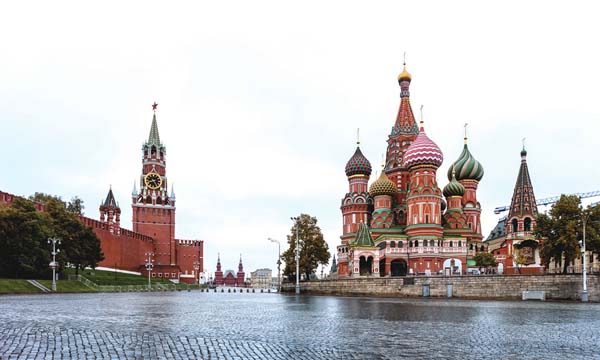
Disintegration of the Soviet Union a vaccine for China
Hu Xijin
Sunday marked the 30th anniversary of the disintegration of the Soviet Union. There is no need for the Chinese people to sigh for it. What we should do is drawing lessons from it, because the US very much hopes that China will become the second Soviet Union and fall apart one day.
The first lesson: The entire Soviet Union, from the leadership to the intellectuals, had been fooled. They were surprisingly naïve. How stupid. The Soviet Union launched the world’s first artificial satellite, sent the first astronaut into space, and built the world’s first nuclear power plant. Its strength of science and technology once made the US tremble. Its light industry and agriculture sectors lagged a little behind. But we know today that those problems are easy to solve.
However, the Soviet Union society felt the country was dying, they disbanded and gave up on their own, and were full of illusions that the US would be kind to the Soviet successor after the disintegration. If the Soviet Union were still there, how could Russia be bullied by the US like today! Future Russian historians will define the disintegration of the Soviet Union as one of the country’s greatest tragedies of voluntarily giving up its strength.
The second lesson: The Soviet Union had a poor economic performance, especially in the later stage. Daily necessities were in short supply and issues related to people’s livelihoods worsened. As a result, it lost people’s hearts and everything. The Soviet Union had a strong military which did not second to the US in their arms race. But the Communist Party of the Soviet Union (CPSU) overlooked one point – the real competition lies in the economy and people’s living standards.
In 1986, I was a postgraduate student. There were many teachers and foreign students from the Soviet Union in my university. I once sent a teacher back to his country and found his luggage contained about 20 boxes, all of which were filled with Chinese products. In 1990, I accompanied a Soviet press delegation and found they gathered cans of Coke and beer in the refrigerator in their rooms, packed and brought them back to their country. That was 10 years since China’s reform and opening-up, and China’s material life was even richer than that in the last years of the Soviet Union. How can people’s mind-sets in Soviet Union not be confused during those years, and how could its people not envy the West? Without cohesion, how could its people avoid losing morale?
The third lesson: The Soviet Union society was rigid. When it touched upon reforms, it began with the political system, Western thoughts and values invaded in an all-round way, and the reform process was seriously out of control. Former Soviet Union leader Mikhail Gorbachev wrote a famous book, New Thinking for Our Country and the World. He was idealistic and bookish, believing political reforms can naturally promote constructive changes in the country. The West praised him so much that made him lost. And the Soviet Union fell into chaos in a fundamental way, and could no longer be integrated.
Fourth, the most fundamental lesson: The leadership of the CPSU had been severely weakened and was heading toward splitting apart. Gorbachev emphasized the strengthening of the power of the Soviet and transferred away most of the power of the party. In some of the republic members, the first secretary of the party led officials and the grassroots to fight against the central government, seeking independence, yet the central government was unable to take action against them. It can be said that the party split first, and then the Soviet Union disintegrated.
The Soviet Union started its reform later than China did. They could not learn from the experience of China’s economic reform or the way China dealt with liberalization and political turbulence, or they were unwilling to learn. China was ahead of the Soviet Union, becoming the one to eat the first crab in the socialist camp about reform and opening up. They all watched our setbacks and successes, but they couldn’t understand it like a fool, and they didn’t know how to draw inferences about other cases from one instance. As a result, China, as an explorer, succeeded, the Soviet Union failed.
The disintegration of the Soviet Union is tantamount to a vaccine for the Chinese society, which has been effective for 30 years.
The writer is a commentator with the Global Times
